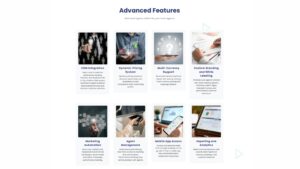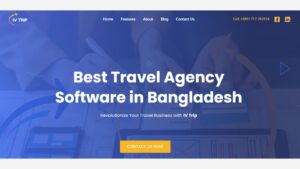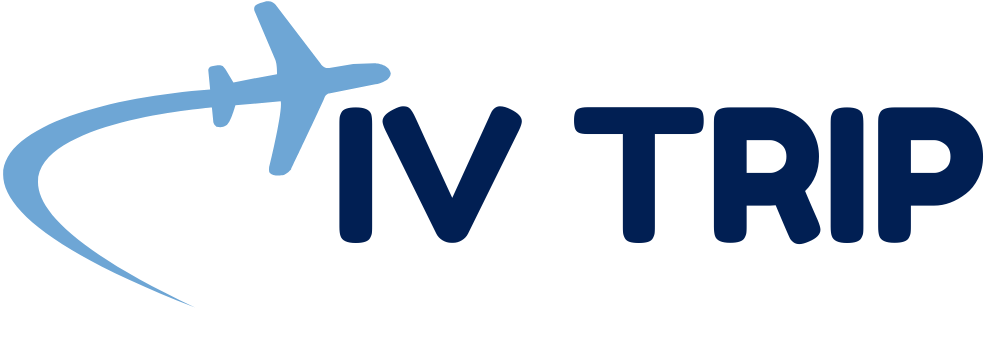5 Key Reasons Why Custom Branding Matters in Travel Software

Why Custom Branding Matters in Travel Software
Imagine a travel agency’s name and logo adorning every digital touchpoint – from booking pages to itineraries. A vintage leather suitcase covered with travel stickers and cartoon icons (airplane, bag, clouds) symbolizes how an agency’s brand travels with customers everywhere. This visual metaphor shows that every detail of the travel experience – including the software and portal – is an opportunity to showcase the agency’s brand. When brand elements (name, logo, colour scheme, tone) are in sync, customers find it easier to identify and connect with your business. In other words, a strong travel brand isn’t just pretty visuals; it’s the full customer experience, reinforcing trust and loyalty at every step.
Creating a cohesive travel brand means defining your agency’s identity (mission, target audience, style) and reflecting it consistently in your software. For example, a cruise company’s brand might evoke adventure and luxury. At the same time, a budget tour operator might focus on value and fun. As one industry guide explains, when branding components (logo, website, tone of voice, colour scheme, etc.) “are in sync, they make it easier for your customers to identify and connect with your tourism business”. In short, your travel brand is made up of these parts – and custom branding in your software ensures they shine through.
What Is a Travel Brand?
A travel brand is the unique identity and promise that a travel agency offers its customers. It includes the company name, logo, website design, marketing message, and the overall customer experience. For instance, a family-friendly tour agency’s brand might focus on safety and togetherness, using warm colours and friendly language. A luxury cruise brand may emphasise elegance with sleek design and upscale imagery.
When all brand elements reinforce each other, customers immediately recognise your agency online. Consistency across digital channels – your website, booking portal, mobile app, and emails – signals professionalism. It makes a positive first impression, so travelers “contact the top options” they see on search engines, trust brand consistency, and ultimately book through you. In a saturated market, a clear, cohesive travel brand helps agencies stand out among many competitors, building the foundation for customer loyalty.

The Power of Custom Branding for Travel Agencies
Custom branding in travel software brings a host of benefits for agencies of all sizes. Here are some key reasons it matters:
- Builds Trust & Credibility: Travellers are more likely to book through a site that feels professional and familiar. A study of travel booking behaviour shows that users tend to “contact the top options” they find online. A consistent brand (logo, colours, messaging) implies reliability. Suppose your travel booking engine or itineraries always carry your agency’s brand. In that case, customers know they’re dealing with you, not a third party. This recognition builds trust.
- Differentiates Your Agency: Travel is a crowded field. Custom branding lets you highlight what makes your agency unique – whether it’s local expertise, special packages, or service style. For example, IVTrip’s white label portals allow agencies to expand their brand presence across sub-agents. In practical terms, you can add your own logo, set branded colour palettes, and craft a booking site that looks and feels like an extension of your company. This differentiation attracts customers looking for a unique identity, rather than a generic booking experience.
- Enhances Customer Experience: Every touchpoint is a chance to reinforce your brand promise. Custom-branded emails, proposals, and mobile apps create a seamless journey. Tools like Safari Portal let travel advisors “stay effortlessly on-brand with your own custom brand fonts, colors, and styles”. This means that when clients download a digital itinerary or use a mobile app you provide, they instantly recognise your agency’s style. A unified brand look makes the experience more polished and memorable.
- Improves Marketing and SEO: Custom branding and marketing go hand-in-hand. A strong brand with branded content can improve click-through rates and customer loyalty. Implevista’s own marketing blog notes that travelers often search for specific trip queries (e.g., “best tour packages in Bangladesh”), and agencies whose sites rank high (with strong branding signals) get more bookings. Branded campaigns (social media, email newsletters, content marketing) become more effective when they reflect your unique identity. For example, content tagged with your brand name can bolster recognition and encourage repeat visits.
- Grows Long-Term Loyalty: Brand loyalty in travel works like elsewhere – customers return to familiar names. If your software consistently uses your branding, customers feel they’re interacting with the same agency every time. Over time, this familiarity reduces marketing costs and boosts referrals. A well-branded travel app or portal can inspire word-of-mouth; satisfied travelers associate positive experiences with your brand, telling friends to “book through us” next time.
In sum, custom branding in travel software is not just aesthetic – it’s strategic. It aligns your digital tools with your business goals, making every booking and itinerary a branded experience.
White Label for Travel Website
White label for travel website is a turnkey solution that travel agencies rebrand as their own. In practice, it means a provider builds the underlying platform (booking engine, portal, app). Still, you apply your custom branding – logo, domain, colours, and design – to it. This approach combines best-in-class technology with full brand control.
A powerful white label platform lets you customise the look and feel of your booking site. For example, Arrivia explains that such platforms allow “full customization to match your company’s branding, styles, and identity”. Travelomatix similarly lists custom branding (logo, domain, design) as a key feature of white label portals. In short, you get a ready-made travel booking engine (flights, hotels, cars, etc.). Still, it appears under your agency’s name and aesthetic.
Key advantages of white label portals:
- Brand Ownership: All client-facing interfaces – websites, agent portals, mobile apps – carry your brand. Customers book through your site (e.g., www.YourAgencyTravel.com), not a generic portal. This reinforces brand identity and avoids confusing travellers with unfamiliar platform names.
- Rapid Deployment: You save time and money by avoiding custom development. The software provider maintains the technology; you tailor it. Travel agents can launch an online portal much faster, which is crucial in competitive markets.
- Full Feature Set: White label platforms often include multi-language, multi-currency, GDS integrations, and other robust features out of the box. You benefit from these advanced capabilities (like flight APIs, hotel search, and dynamic pricing) without sacrificing branding.
- Scalability and Reach: Many white label solutions support extensive supplier networks. For example, a modern portal may connect to global GDS, local low-cost carriers, hotel wholesalers, and car rentals. Your branded site can thus offer a wide inventory to customers while you focus on marketing and support.
- Cost Efficiency: Building a custom travel booking engine is costly. White label models spread development costs across many clients. You invest in custom branding and marketing instead of IT infrastructure. Arrivia notes that this lets agencies “focus on branding and marketing” while the provider handles the tech side.
Taken together, white label travel websites mean your agency can deliver a fully branded travel experience without building software from scratch. Customers see you at every step, which “builds trust” and signals professionalism. In essence, a white label portal is like having your own private airline booking engine – designed by experts, but wearing your name.

Software for Travel Agencies: Ensuring Your Brand Comes First
Not all travel agency software supports custom branding equally. When choosing software for a travel agency, look for built-in branding features. Essential branding-related features include:
- Custom Themes and Templates: Can you upload your own logo and select colour schemes in the software? Good platforms let you tweak the interface (headers, footers, buttons, fonts) to match your visual identity. For example, many itinerary builders allow agencies to produce branded proposals. Safari Portal’s feature list explicitly highlights using “your own custom brand fonts, colors, and styles” to stay “on-brand.”
- White label Domains: The ability to use your domain (or subdomains) is key. Instead of ivtrip.com/agent123, you might have agents.YourBrand.com. A branded URL reinforces identity and SEO.
- Custom Email/Notification Branding: The software should let you send emails or push notifications (booking confirmations, itineraries) with your logo and wording. This ensures that every communication – from booking updates to marketing emails – carries your brand. Tools lacking this may confuse clients if messages appear to come from a generic source.
- White label Mobile Apps: If the software offers a mobile app (for agents or customers), check if it can be skinned with your brand. A branded mobile app icon and interface continue the brand experience on phones. Having “mobile-friendly, on-brand apps” lets travelers feel they are dealing directly with your agency wherever they go.
- Multi-Agent/Franchise Portals: Larger agencies or networks may have sub-agents. A good platform often lets each sub-brand have its own branded portal under the corporate umbrella.
- Custom Booking Widgets: Some software lets you embed branded booking search forms on any website. This maintains brand consistency even if bookings happen outside the main portal.
In essence, travel agency software should be a canvas for your brand, not just a tool. IVTrip exemplifies this by including white label and customization options as core features. As one Implevista blog notes, IVTrip centralizes operations for agencies while allowing them to focus on customer experience and growth. By choosing software with robust custom branding controls, you ensure every customer touchpoint – whether a flight ticket email or a trip itinerary – reinforces your agency’s identity.
Key Benefits of Custom Branding in Travel Software
Embracing custom branding in your travel software yields tangible advantages:
- Enhanced Brand Awareness: Every booked flight ticket, hotel voucher, or itinerary sent to the customer carries your logo and design. This repeated exposure imprints your brand in clients’ minds. Studies show that repeated brand exposure dramatically increases recall and loyalty. Arrivia points out that rebranding a portal under your name “can increase brand awareness and establish you as a critical player in the market”.
- Consistent User Experience: A unified look-and-feel across web, mobile, and documents makes your business appear polished. Customers experience a cohesive journey – from visiting your site to receiving travel documents – which increases satisfaction and referral. It also avoids confusion that might arise if, say, an app or email looked like it came from another company.
- Increased Conversions: A professional, well-branded interface conveys competence. Customers trust brands that invest in quality design. For example, prominent travel portals like Booking.com or Expedia reinforce their brand identity at every step, and independent agencies should do the same. When travelers see your branding consistently, they’re more likely to complete bookings.
- Streamlined Marketing: Branded software simplifies marketing efforts. Your social media, email campaigns, and digital ads can link directly to your branded portal. You don’t have to explain a new brand every campaign; your logo and style speak for you. This synergy can improve SEO (by targeting brand-related search terms) and click-through rates on ads.
- Competitive Edge: In markets where generic booking engines are common, a custom-branded solution signals professionalism. It tells customers that you’re an established agency, not a one-off startup. This can be especially valuable when working with corporate clients or high-end travelers who expect reliable branding.
- Faster Trust Building: Remember, travelers have many options. A coherent brand presence – through a customised booking site, branded email communication, and even a mobile app – helps you establish trust more quickly. Implevista notes that ranking high on search builds trust, and custom branding is a part of achieving that visibility. In essence, a strong brand lowers the barrier for customers to try your service.
Implementing Custom Branding in Travel Software
Once you’ve chosen software that supports custom branding, putting it into action involves a few key steps:
- Upload Your Logo and Colors: Use the software’s settings to add your high-resolution logo and set your primary colour palette. Many platforms allow you to adjust header/footer backgrounds, button colours, and text styles. Make sure the custom branding on booking widgets, headers, and footers matches your agency’s style guide.
- Configure Branded Domain: Map your chosen domain or subdomain to the software. For instance, use book.YourAgency.com or www.YourAgency.com for the booking portal. This often involves updating DNS records or settings within the platform’s admin console. Once set up, users see your URL in the browser, reinforcing the brand connection.
- Customize User-Facing Content: Edit default copy, images, and email templates to reflect your brand voice. Change generic greetings (“Dear Customer”) to more personalized messages. Use branded language in notifications and on-page text. This ensures even the words your customers read carry your identity.
- Design Branded Assets: If the software provides template documents (itineraries, invoices, vouchers), replace header graphics or templates with your own designs. IVTrip, for example, generates itineraries – you can upload a branded cover page so every proposal looks like your creation.
- White label APIs (if applicable): For agencies that integrate booking tools into their own websites or apps, use the software’s API but apply your custom branding on the front-end. This means even third-party components (like flight search forms) can be styled to match your brand. Ensure the API integration allows for branded UI elements.
- Test Across Devices: Verify that your branding appears correctly on different platforms. Check the desktop site, mobile site, and any mobile app. Ensure logos scale properly and colour contrasts are accessible. For example, the IVTrip software is fully responsive, so test that your custom colours and images look good on smartphones and tablets too.
- Train Staff: Ensure everyone on your team understands the brand guidelines. Even in the software’s internal notes or chat, have your agents sign off with the company name consistently. This keeps the brand unified in all communications, not just the software interface.
By carefully applying your branding elements in the software, you turn a generic platform into a seamless extension of your agency’s identity. All customer interactions – booking confirmations, itinerary PDFs, portal logins – become branded touchpoints that reinforce who you are.

Travel Agency Software in Bangladesh
- Custom Branding matters more in Bangladesh
The travel market is growing rapidly with rising domestic and outbound travelers.
o Local agencies compete both with one another and with global OTAs.
o Strong branding helps agencies stand out in a crowded market.
- IVTrip is a local example of a development in Bangladesh to address local needs.
o Offers full custom branding features.
o Includes Bangla-language interfaces and local currency options.
o Let’s agencies present platforms in Bengali or English for customer comfort.
o Recognized as the leading travel agency software in Bangladesh.
o Helps agencies scale using technology while keeping their own brand identity.
- Importance of digital strategy in Bangladesh
Digital visibility is critical for tourism, as noted by Implevista’s Digital Marketing team.
o A branded website ranking for local keywords (e.g., “tour packages Bangladesh”, “Dhaka travel agent”) drives more traffic.
o Consistent branding across ads and content boosts recognition among Bangladeshi travelers.
o With over 70% of travelers booking online, agencies without strong online custom branding risk losing customers.
o Custom-branded travel software ensures your agency’s name appears across search results, social media, and apps — not just on your office signboard.
- What branded travel software means in Bangladesh
Supports local language, local currency, and local business practices.
o Helps agencies shift from traditional office-based operations to the digital marketplace.
o Keeps the agency’s local brand front and center across all customer touchpoints.
Case Study: IVTrip‘s Custom Branding and White Labeling
Implevista’s own travel solution, IVTrip, showcases how travel software can fully support agency custom branding. IVTrip is developed in Bangladesh as an all-in-one travel agency management system, and it offers white label customization for agencies. For example, IVTrip’s B2B portal has white label portal options that let a parent agency create branded sub-agent portals. This means a network of travel partners can all sell using one unified brand identity, under the main agency’s logo and design.
Additionally, IVTrip allows agencies to integrate their logos and color schemes throughout the booking interface and client portals. All invoices, booking emails, and reports generated by IVTrip can include the agency’s custom branding. The platform is cloud-based and mobile-friendly, ensuring that whether an agent books a flight in the office or on their phone, the agency’s brand is always front and center.
As the Implevista product blog notes, IVTrip automates and centralises travel agency workflows – and does so while “streamlining travel agency operations” under the agency’s brand. By embedding custom branding into each module (flights, hotels, packages, CRM, and accounting), IVTrip helps agencies grow without losing their unique identity. Travel agencies using IVTrip have seen improved efficiency and customer satisfaction; those gains are amplified when customers see a familiar, branded interface at every step.
Custom branding helps travel agencies strengthen their online presence and build customer trust. By adding your agency’s name, logo, and style across booking engines, itineraries, and communication, you create a consistent brand experience that stands out in a competitive market.
White label travel software makes this easy, offering full branding control without needing complex development. Platforms like IVTrip let you customize portals, proposals, and mobile apps—helping your agency look professional and stay visible through strong SEO and digital marketing.
Ready to upgrade your brand? Contact Implevista for a fully branded travel software solution, explore IVTrip‘s features, or request a demo. Your brand is your promise—make sure your software reflects it.
FAQ: Custom Branding
What is custom branding in travel software?
Custom branding means applying your travel agency’s unique identity (logo, colors, fonts, voice) to the software platform. It includes using your own domain for booking portals, designing interfaces with your color palette, and customizing communication templates. The software appears as an extension of your agency, not a third-party tool.
Why is branding important for travel agencies?
Branding builds trust and recognition. Travellers are more likely to book through a site that clearly displays a professional agency brand. Consistent branding in your software (website, emails, itineraries) signals reliability. It helps customers remember you and keeps them coming back, which is crucial in the competitive travel market.
How does a white label travel website work?
A white label travel website is a pre-built booking platform that you rebrand as your own. The underlying engine (flights, hotels, etc.) is provided by a tech partner, but you apply your logo, colors, and domain. This means you get a full-featured travel booking site instantly, but customers only ever see your brand on it. It’s a fast, cost-effective way to launch a branded travel portal.
What is a travel brand, and how do I build it?
A travel brand is your agency’s identity – its name, logo, website, messaging, and the experience it promises. To build it, define what makes your agency unique (such as adventure focus or family trips), then design a logo and style that reflect that. Use those elements consistently across your website, social media, and software. As one guide puts it, a travel brand’s components (company name, logo, mission, tone, color scheme, etc.) “make it easier for your customers to identify and connect” with you.
Can small travel agencies benefit from custom branding?
Absolutely. Even boutique or startup agencies can use custom-branded software. In fact, a well-branded site can give a small agency a professional appearance that competes with larger players. Using white label solutions, even small teams get big-brand polish. It shows customers you’re serious and can win trust quickly.
How do I implement custom branding in my travel software?
Most modern travel platforms have branding settings. You would upload your logo, select your agency’s color scheme, and enter your custom domain. Then adjust email or document templates to include your headers and footer images. Finally, replace any default text (like “Book now” buttons) with your agency’s wording. The specific steps depend on the software, but the concept is to replace generic assets with your own.
Does custom branding increase bookings?
Indirectly, yes. A consistent brand presence makes customers feel more comfortable and familiar with you. Customers who trust your brand are more likely to click ‘book’ because the site feels professional and reliable. Also, branded marketing efforts tend to convert better. For example, suppose customers search for travel packages and find your agency’s beautifully branded site on page one of Google. In that case, they’re more likely to trust it and book.
What features should I look for in travel agency software for branding? Look for white label capabilities: the ability to add your logo, use your domain, and customize the user interface (colors, images). Also, check if emails and invoices can carry your branding. Support for multiple languages is a plus in Bangladesh. Software like IVTrip even offers white label portals for sub-agents. Essentially, the more you can tailor it to your visual identity, the better it will serve your brand.
Can I use custom branding with the IVTrip software?
Yes. IVTrip is designed to be fully brandable for Bangladeshi agencies. You can customise the agency portal with your logo and colors, and even set up sub-portals for partners under your brand. All client-facing documents (tickets, itineraries, invoices) generated by IVTrip can also be branded. This ensures customers always interact with YOUR agency’s name and style.
How does digital marketing tie into travel branding?
Digital marketing and SEO amplify your brand online. A strong brand ensures that your online ads, social posts, and content campaigns are immediately recognised. As Implevista notes, optimizing for travel keywords (like city tours or popular destinations) is essential, and branding your content helps with visibility. For example, a blog post tagged with your agency’s name on your branded site will rank for brand-related searches, drawing in clients who already trust your identity.

